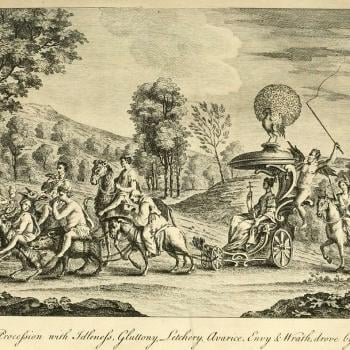Parenting books are big business these days. First came Amy Chua's Battle Hymn of the Tiger Mother, a guide to parental hectoring and humiliation as the keys to childrearing success. Now comes Bryan Caplan's Selfish Reasons to Have More Kids: Why Being a Great Parent is Less Work and More Fun, which is anti-Chua to the core.
Caplan's advice for American parents? Take it down a notch. Stop the endless rounds of practices and lessons, and the constant crusade to ensure the children's ill-defined success. Relax, he says, enjoy your children, and restore a sense of proportion and sanity.
All of which is good. But when Caplan, an economics professor and blogger, offers a scientific rationale for this advice, his analysis runs off the rails. Citing a dizzying array of studies that may or may not prove anything, Caplan makes the case that what we do as parents actually has little long-term impact on our children's lives.
Ultimately, according to Caplan, an individual's character is controlled by genetics. We might temporarily bend the behavior of our children with consistent discipline, but when they grow up they will do what they want. The good news is that most of our offspring grow up to be decent people and law-abiding citizens, and they may even bring home grandchildren. So, he advises, have more children than you planned, set them on auto-pilot, and let them bring you great joy in due time.
Yes, that is Amy Chua you hear screaming in the background. But many Christian readers will join her. Caplan's assumptions run against the grain of the common Christian conviction that godly parenting will bear good fruit (and that negligent parenting will do the opposite), as expressed in Proverbs 22:6, "Train up a child in the way he should go; even when he is old he will not depart from it." Caplan does affirm that most children will grow up to mimic their parents' behavior, but not because of anything the parents do. Instead, he argues, the studies show that children usually turn out similar to their biological parents even in cases where they are permanently separated from their biological parents via adoption—suggesting that nature triumphs over nurture.
Even Caplan confesess that he cannot fully accept genetics' determinative role. What's the point in thinking about parenting methods at all, if the home environment has a negligible influence? If genetic inheritance determines everything, then why should utter neglect or even child abuse have any lasting effects? He does not give clear answers.
Caplan implies that the biblical injunctions regarding childrearing are pointless. Proverbs 22:6 assures us that godly childrearing will produce lasting results (though we all know of children from godly families who rebel). Caplan's philosophy is amoral with regard to childrearing. He thinks you should let the children watch whatever they want—he is especially keen on The Simpsons -- as long as it doesn't keep them up at night. They'll learn about the bad stuff sooner or later. As I suspect Caplan would readily admit, God is absent here, as is a vision for a child's virtuous life of significance. (For parenting advice focused on these topics, see Anthony Esolen's satirical Ten Ways to Destroy the Imagination of Your Child, which I reviewed earlier.)
Nevertheless, I find Caplan a useful corrective against obsessive American parenting. He shows, for instance, that our fanatical concern for our children's safety, which leads to incessant monitoring and parent-planned play, is an overreaction to media coverage of child abductions and similar tragedies. It turns out that these incidents are far less likely to happen than, say, getting in a wreck on the way to soccer practice. Horrific cases of abduction are real, but the media's endless reporting on them creates a false impression. An American child's chance of being kidnapped by a stranger is literally one in a million. Kids are safer now by almost every metric than they were in the 1950s.
I also cannot complain too much about a writer who thinks that children are good and more children are better. Having children is, obviously, better for the children themselves, and when societies stop having children—as western Europe and Japan are discovering—it harms the nation for generations and makes it difficult to support the aged population. In the last analysis, however, financial security for seniors and personal satisfaction for parents only begin to explain the manifold reasons why, in the divine economy, "children are a heritage from the Lord."
8/15/2011 4:00:00 AM





